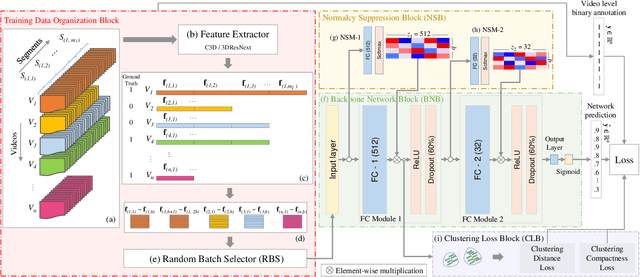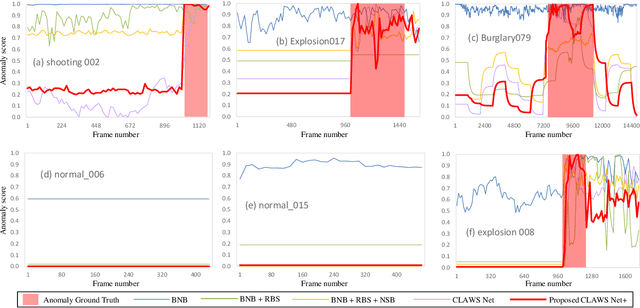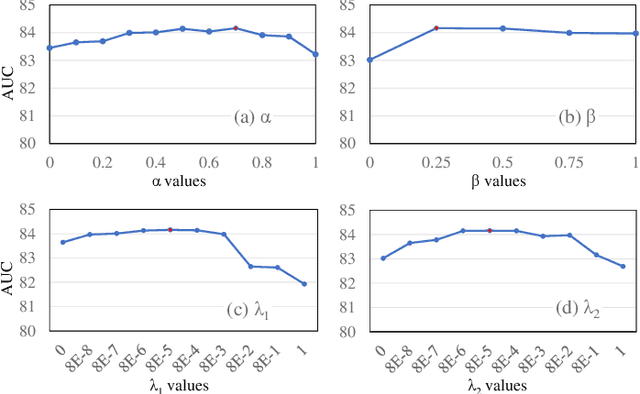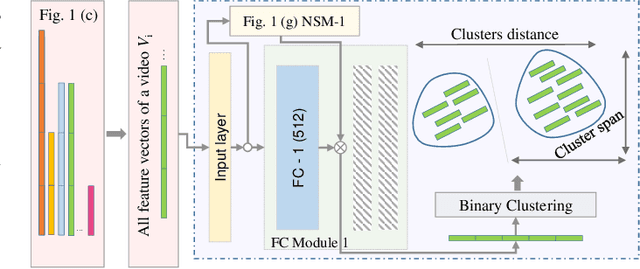Clustering Aided Weakly Supervised Training to Detect Anomalous Events in Surveillance Videos
Paper and Code
Mar 25, 2022



Formulating learning systems for the detection of real-world anomalous events using only video-level labels is a challenging task mainly due to the presence of noisy labels as well as the rare occurrence of anomalous events in the training data. We propose a weakly supervised anomaly detection system which has multiple contributions including a random batch selection mechanism to reduce inter-batch correlation and a normalcy suppression block which learns to minimize anomaly scores over normal regions of a video by utilizing the overall information available in a training batch. In addition, a clustering loss block is proposed to mitigate the label noise and to improve the representation learning for the anomalous and normal regions. This block encourages the backbone network to produce two distinct feature clusters representing normal and anomalous events. Extensive analysis of the proposed approach is provided using three popular anomaly detection datasets including UCF-Crime, ShanghaiTech, and UCSD Ped2. The experiments demonstrate a superior anomaly detection capability of our approach.
 Add to Chrome
Add to Chrome Add to Firefox
Add to Firefox Add to Edge
Add to Edge